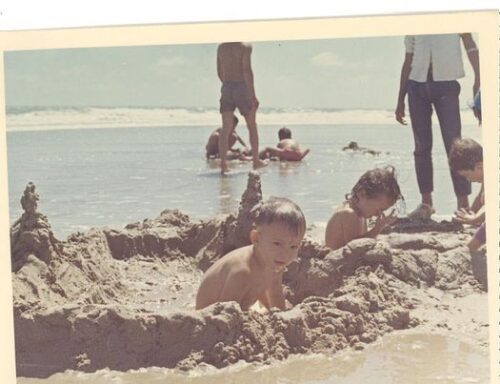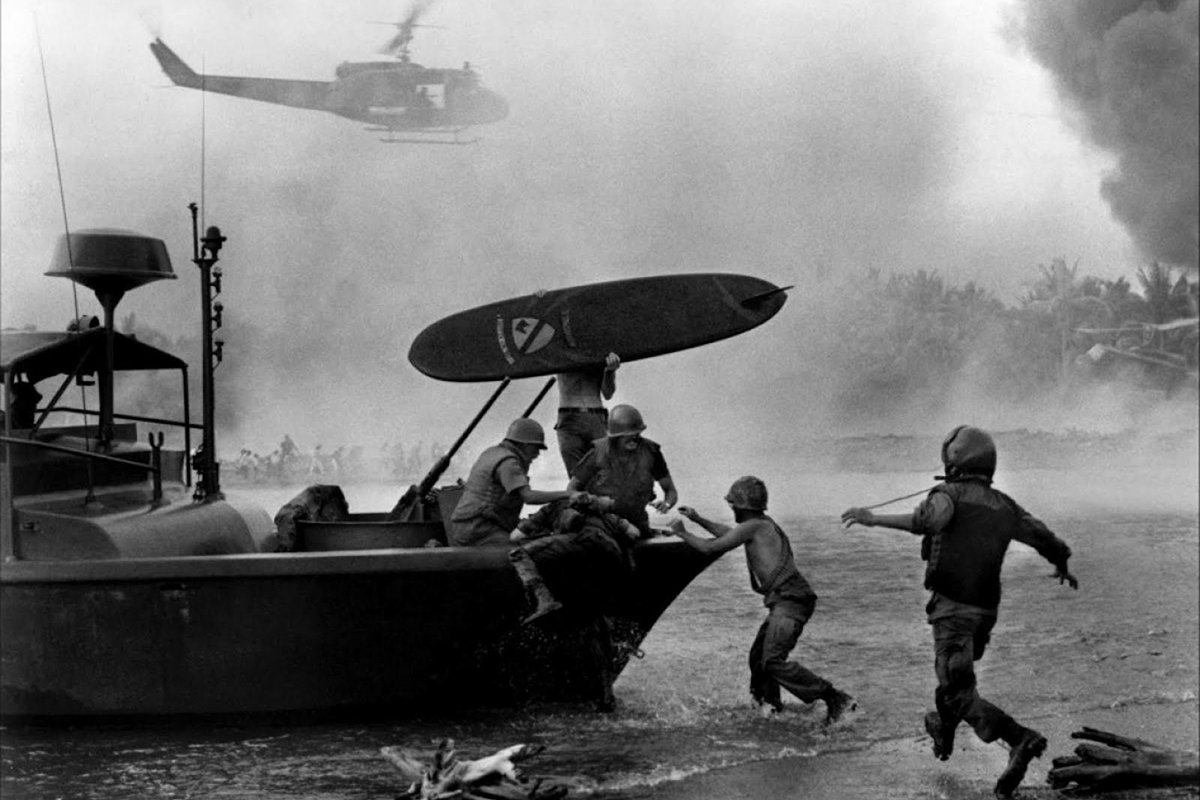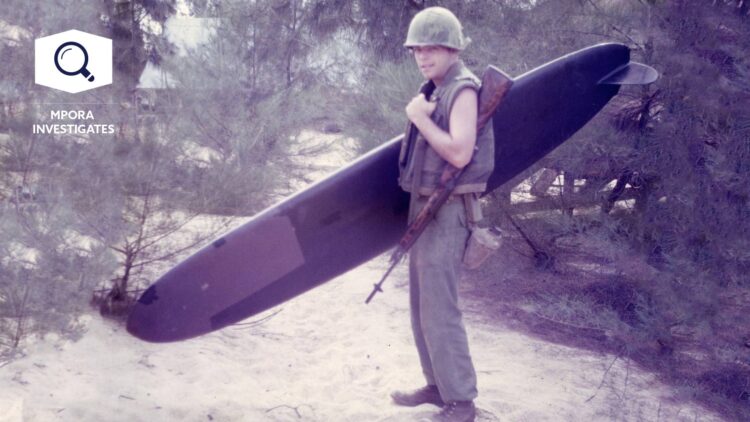Amidst the turmoil and challenges of the Vietnam War, surfing provided a temporary respite and escape for soldiers seeking solace and a connection to their home country. While the history of surfing during the Vietnam War is relatively niche, it highlights the diverse ways in which individuals cope with adversity and find moments of joy even in the most challenging circumstances. Many soldiers had grown up with surfing as part of their lifestyle, having embraced the sport in popular coastal regions of California, Hawaii, and other surfing hubs. Historians recount that it was the Australians who did it first, yet surfing’s presence in Vietnam was largely due to the American soldiers who brought their boards with them. As troops were deployed to the coastal regions of Vietnam, particularly in places like Da Nang and Vung Tau, they discovered the waves and sandy beaches ideal for riding.
Surfing became a form of escape, allowing them to momentarily forget about the hardships of war and connect with a sense of normalcy. Riding the waves provided a sense of freedom, adrenaline, and a connection to the ocean that soldiers longed for, reminiscent of their lives back home. During their time off from combat duty, soldiers would venture out to nearby beaches and seek refuge in the waves. Soldiers would swap stories, share techniques, and create a sense of camaraderie that transcended their wartime experiences. Some soldiers even managed to construct makeshift surfboards from materials they found in Vietnam, as proper equipment was not readily available. The surfing community within the military began to form as soldiers with a shared love for the sport came together to ride the waves.
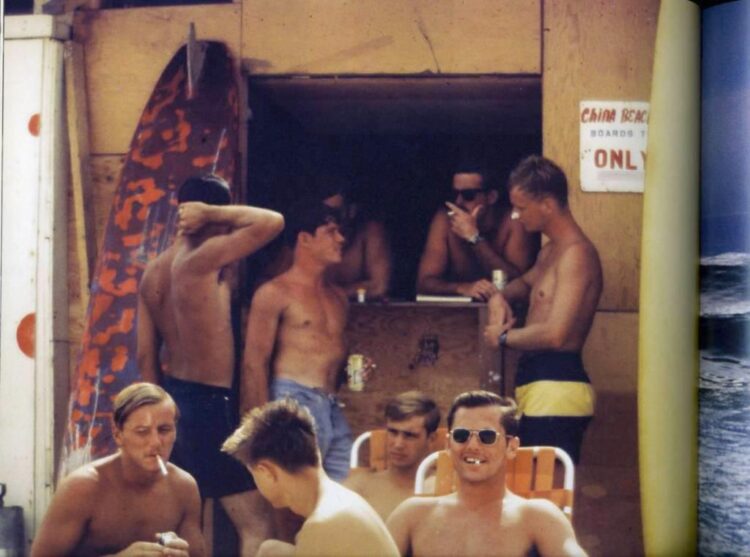
Surfing during the Vietnam War was not without its challenges. The war’s unpredictable nature and constant movement of troops made it difficult for soldiers to have consistent access to surf spots. Furthermore, the dangers posed by combat and the unpredictable weather conditions sometimes limited the opportunities for soldiers to surf safely. Count sharks and sea snakes as a few potential problems. Nevertheless, the sport continued to provide a temporary escape and a connection to home for many soldiers throughout the conflict.
The China Beach Surf Club in Vietnam holds a special place in the history of surfing during the Vietnam War. Named after the iconic China Beach (My Khe in Vietnamese), a stretch of coastline near Da Nang, the surf club became a symbol of camaraderie, escape, and the pursuit of joy amidst the chaos of war. It provided American soldiers stationed in Vietnam with a sense of community and a temporary refuge from the realities of combat. China Beach was the English name given by American and Australian soldiers during the Vietnam War to the beach.
The origins of the China Beach Surf Club can be traced back to the mid-1960s when American troops began to discover the potential for surfing along the Vietnamese coast. With its long sandy beach and consistent waves, China Beach quickly became a popular destination for soldiers seeking solace and respite from the intensity of war. It was during this time that soldiers, many of whom had brought their surfboards with them to Vietnam, started congregating at China Beach to ride the waves.
The surf club emerged organically as soldiers with a shared love for surfing began to connect and form bonds over their common passion. They would gather on the beach, exchange stories, share equipment, and support one another in navigating the waves and challenges of war. The club provided a sense of camaraderie and a connection to home for these soldiers, as they found comfort in the familiar rituals and language of surfing.
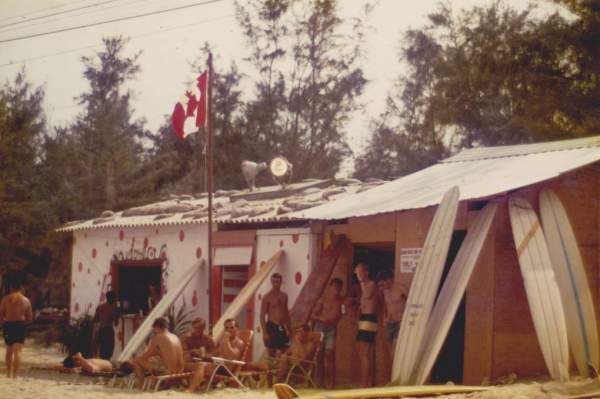
Despite the difficult conditions and constant upheaval of war, the China Beach Surf Club managed to thrive. It became a haven where soldiers could momentarily forget about the chaos and danger surrounding them, allowing them to experience a sense of normalcy and freedom in the waves. Surfing provided a physical and mental release, an opportunity to channel their energy into something positive, and a reminder of their lives outside the war zone. The China Beach Surf Club not only provided soldiers with a recreational outlet but also served as a support system. The club members looked out for one another, offering encouragement, advice, and a sense of belonging in a foreign and often hostile environment. It became a community within the larger military community, fostering friendships that would endure beyond the war.
The surf club’s significance extended beyond the beach itself. It gained recognition and appreciation from soldiers stationed throughout Vietnam, even those who did not surf. The club represented a symbol of resilience, camaraderie, and the pursuit of joy amid adversity. It served as a reminder that even in the darkest of times, there are moments of light and connection to be found. Surfing was made even more popular by the director John Milius of such notable film as Jerimiah Johnson, and Red Dawn. A coming of age story, it chronicles the three characters’ transition to adulthood with parties, surf trips, marriage and the Vietnam War in the background. In the last sequence of the film, the three are reunited to face the “Great swell of 74”, which represents the final moment in this maturation process. Some commentators ascribed the early critical and commercial failure of Big Wednesday to the Vietnam wound, that was still too fresh.
“The film tells the story of three young friends whose passion in life is surfing. Their surfing lives are traced from the summer of 1962 to their attempts of dodging the Vietnam War and to the end of their innocence in 1968 when one of their friends is killed in Vietnam. The three make the difficult transition to adulthood with parties, surf trips, marriage, and the war.”
Some men didn’t have to watch the movie, because they experienced it. In 2019 a documentary titled ‘Back to China Beach’ chronicled the Vietnam War surfing club. The club was shaped by Pensacola resident Larry Martin, a Navy storekeeper during Vietnam. “Being able to be in the water and to be away from the war that’s happening right on the beach, it was like a relief,” Martin said Thursday. “That’s the only thing that kept their sanity.” The Pensecola News Journal wrote, “Pensacola-based producers Mike Cotton and Dave Barnes spoke to over 100 Vietnam veterans familiar or involved with the club for their documentary. “Back to China Beach” covers everything from Martin’s initiative to better organize the club and protect surfers from themselves, to the healing power of wave-riding, which many vets practiced long after they returned home.”
Today, the legacy of the China Beach Surf Club lives on through the memories and stories of the soldiers who were part of it. It serves as a testament to the human spirit’s ability to find solace and unity through shared passions, even in the most unlikely of circumstances. The club’s existence during the Vietnam War underscores the power of surfing as a means of escape, community-building, and personal resilience, leaving an indelible mark on the history of both surfing and the war itself.
After the war, some veterans returned to their surfing roots, while others hung up their boards and moved on with their lives. The experiences of surfing during the Vietnam War remain a unique chapter in the history of both surfing and the conflict itself. They serve as a reminder of the resilience and adaptability of individuals in finding solace and connection, even in the most challenging and unlikely circumstances.
